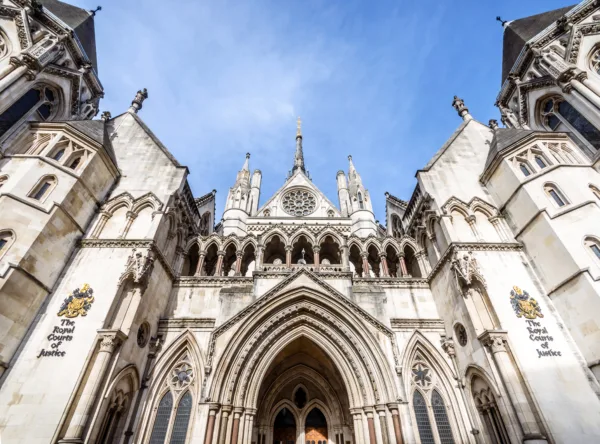New Square Chambers is a leading property set of barristers, with an excellent reputation across a range of disciplines, from real estate and landlord & tenant disputes to highly specialised areas such rural affairs and public access to land. We have a diverse client base, including landed estates, local authorities, private individuals, action groups and developers.
Our barristers are regularly involved in cases at all levels, including the Court of Appeal and Supreme Court and in disputes which consider issues of wider public importance, at the forefront of the jurisprudence, and often in cases which do not bend easily to any particular categorisation.
Landlord & tenant
Barristers at New Square Chambers are highly experienced and well-regarded for their expertise in cases involving business leases, residential tenancies, agricultural tenancies, right to manage, and housing.
Our clients include London estates, social landlords, national retailers, charities, and tenants. Barristers at New Square Chambers are familiar with all of the following areas of work:
- Forfeiture and claims for relief from forfeiture, particularly in relation to business tenancies governed by the 1954 Landlord and Tenant Act
- Rent reviews
- Service charges
- Professional negligence
- Dilapidations
- Break clauses
- Improvements and alterations
- Injunctions to prevent breaches of the covenant of quiet enjoyment, or to prevent development
- Claims to tenancies under the Agricultural Holdings Act 1984 and the Agricultural Tenancies Act 1995
- Actions for possession against residential tenants, whether Assured, Assured Shorthold or protected
- Claims for disrepair, and arguments concerning set-off
- Telecommunications
- Validity of notices
- Rights of first refusal
- Managers and RTM companies
- Deposits
- Insolvency in property or landlord and tenant context
For Real Property litigation, our barristers frequently appear in the appellate and first instance courts and offer experience in specialised proceedings in the First Tier Tribunal (Property Chamber), including the divisions for Land Registration and Residential Property.
New Square Chambers is well-known for their expertise in the difficult and contentious areas of real property including boundary disputes, easements (including private rights of way) and covenants. Many members also deal with niche areas such as chancel repair liabilities and profits. Claims also dealt with include claims under the Party Wall Act etc 1996, or the Access to Neighbouring Land Act 1992.
One notable example of a case involving proprietary estoppel is Guest v Guest, in which Guy Adams appeared as counsel. This case is considered a landmark in jurisprudence relating to proprietary estoppel and showcases New Square’s expertise in this area, which runs across all levels of call in chambers.
Other cases of note include Marr v Collie [2018] AC 631 PC (Privy Council, Bahamas) on co-owned property/resulting trusts and Inhenagwa v Onyeneho [2017] EWHC 1971 (Ch) co-owned property and issue estoppel.
As seen from the below, New Square Chambers has an excellent reputation across all areas of real property litigation:
- Boundary disputes
- Adverse possession
- Easements
- Land registration
- Restrictive covenants
- Overage agreements, their enforcement and preparation
- Claims to interests in property by resulting or constructive trust
- Claims in proprietary estoppel, particularly in the context of farmland or development
- Compulsory Purchase
- Rights to light
- Ransom strips
- Third party interventions in divorce proceedings
Public rights over land
New Square Chambers has real strength in depth in this area of law, offering barristers at all levels of call. There is scarcely an important case in this area in the last 20 years which has not involved members of Chambers. Members of New Square act in these cases for the public, for landowners or the local authority, which gives them a competitive advantage, especially in the appellate courts. Our barristers are also regularly appointed as Inspectors of public inquiries under the Commons Act 2006
In the particular context of development, New Square is considered a leading set for dealing with the creation, maintenance, and improvement of highways, civil liability, and the protection of both the highway and highway users. We can also advise on the extinguishment and diversion of highways, as well as private streets, bridges and footpaths, bridleways, and byways. We have experience with access to open land and coastal land, as well as street works and the necessary authorisation procedures. Our team is well-versed in traffic regulation and management, and can assist with acquisition of land, compulsory purchase powers, inquiries, and compensation.
New Square Chambers hosts an annual Public Rights Over Land conference, sharing knowledge and insights with colleagues and clients.
Notable cases include:
- R. (on the application of Beresford) v Sunderland City Council [2003] UKHL 60; [2004] 1 A.C. 889
- R. (on the application of Lewis) v Redcar & Cleveland BC [2010] UKSC 11; [2010] 2 A.C. 70
- Betterment Properties (Weymouth) Ltd v Dorset CC (No.2) [2010] EWHC 3045 (Ch); [2011] 1 E.G.L.R. 129
- Leeds Group Plc v Leeds City Council (No.2) [2011] EWCA Civ 1447; [2012] 1 W.L.R. 1561
- Paddico (267) Ltd v Kirklees Metropolitan Council [2012] EWCA Civ 262; [2012] 2 P. & C.R. 1
- R. (Mann) v Somerset County Council [2017] 4 W.L.R. 170
- R(Newhaven Port and Properties Ltd) v East Sussex CC [2012] EWHC 647 (Admin); [2012] 3 W.L.R. 709
- Lancashire CC v Secretary of State for the Environment, Food and Rural Affairs [2016] EWHC 1238 (Admin)
- TW Logistics Ltd v Essex County Council [2018] EWCA Civ 2172
Charities in relation to property
Charities own significant estates, for example universities, colleges, church organisations and housing associations. A wide range of charities own and use property, whether under trusts, as part of corporate property or for investment purposes. Chambers combines excellence in property matters with technical knowledge and experience with regards to the particular charity law issues that arise. Members have tackled cases, for example, which have involved property transfers under Part 7 of the Charities Act 2011, which are being challenged as void, and matters which concern important development sites held under historic trusts, which are contended to be charitable.

![Alessio Compagnino’s Case Notes On Bakhaty & Anor v Hampshire County Council [2025] EWHC 1175 (KB)](https://newsquarechambers.co.uk/wp-content/uploads/2024/01/Assets-of-community-value-1-600x400.webp)
![Laura Webster considers the recent Court of Appeal decision of White v Alder [2025] EWCA Civ 392](https://newsquarechambers.co.uk/wp-content/uploads/2025/03/AdobeStock_176734179-600x401.webp)



























